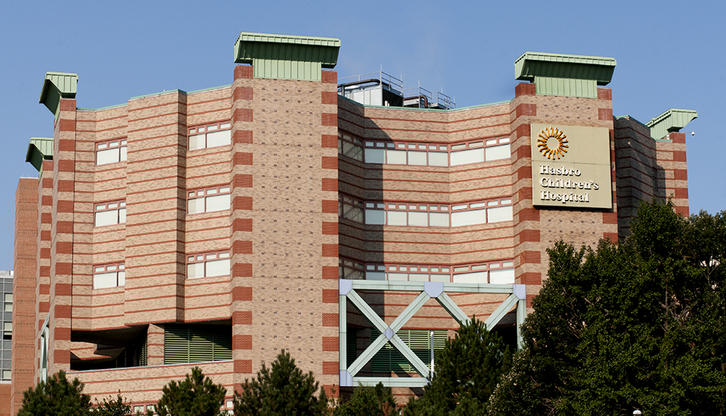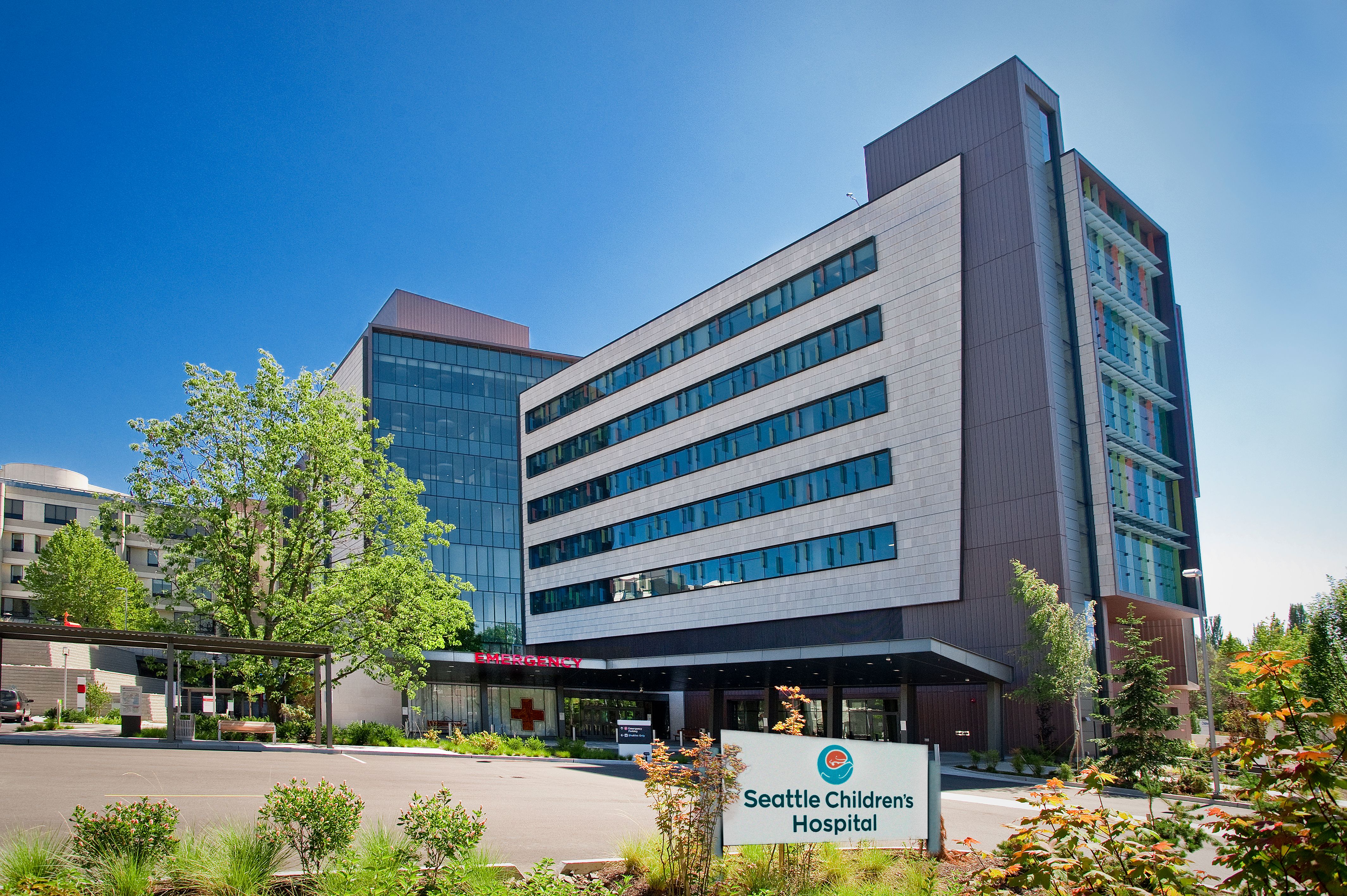Children’s hospitals filled with RSV cases, concerns of ‘tripledemic’
Health systems are reporting unusually early surges of the respiratory virus, and they are worried about the possibility of rising flu and COVID-19 cases.
Hasbro Children's Hospital has seen a surge of patients with RSV, well before the typical peak in the winter. Hospitals across America are flooded with patients with RSV. (Photo: Hasbro Children's Hospital)

Hospitals across America are treating more children with respiratory viruses, with some saying they have rarely, if ever, seen so many cases.
Health systems are reporting significant spikes of children with respiratory syncytial virus, more commonly known as RSV. About 75% of the beds in pediatric hospitals nationwide are filled, according to The Washington Post, citing federal health data.
While the virus tends to be mild for many people, it can be more serious in children, it can lead to serious complications for children 5 and under, older adults, and others with health issues.
Doctors say they’re worried about the uptick in RSV cases, especially with concerns of rising flu cases and the possibility of increased COVID cases in winter.
Ashish Jha, the White House COVID-19 response coordinator, spoke with NBC and CBS Tuesday morning, describing the potential for a “tripledemic” this winter. “It’s always concerning when you have three respiratory viruses, RSV, influenza, and COVID, rising at the same time,” Jha told CBS.
RSV cases typically peak in winter, but hospitals and health officials are worried about the volume they’ve already seen in the fall.
Hasbro Children’s Hospital in Rhode Island reached 125% of capacity this week.
“RSV is clearly the number one cause,” Michael Koster, director of pediatric infectious diseases at Hasbro Children’s Hospital, told Chief Healthcare Executive Tuesday. Two-thirds of the patients admitted with respiratory distress have tested positive for RSV, he said.
Health systems, including Hasbro Children’s, typically see peak volume with RSV in December or January.
“This is definitely unprecedented and historic in a lot of ways,” Koster said. “More importantly, we’re constantly in a continuous crisis and dealing with the ebbs and flows where none of the ebbs have provided any relief for the staff. It's tidal wave on top of tsunami.”
During the week of Oct. 15, more than 7,300 RSV cases were reported, up from 6,500 the previous week, according to the U.S. Centers for Disease Control and Prevention. For perspective, there were no weeks with even 5,000 RSV cases in 2021, according to CDC data.
Seattle Children's Hospital is routinely at 200% of capacity, and the high number of RSV cases are adding to that volume. (Photo: Seattle Children's)

‘Stretched our capacity’
Children’s Hospital Los Angeles is seeing an unusually early surge of RSV cases, James Stein, the hospital’s chief medical officer, said in a statement. The hospital is seeing a positivity rate of 31% for RSV, well above last winter’s peak of 24%. The average age for RSV patients at Children’s Hospital Los Angeles is 2 years old.
“This increase in RSV and other respiratory illnesses have stretched our capacity in the Emergency Department (ED), but we are still able to accommodate inpatient RSV admissions from our ED at this time,” Stein said in the statement. “We continue to do our best to accept respiratory transfers from other EDs in the community during this surge, but we are not always able to accommodate them due to our ED capacity constraints.”
Dr. Russell Migita, attending physician and a clinical leader of emergency services at Seattle Children’s, said in a statement the system is seeing 20-30 positive tests for RSV each day in the hospital and urgent care centers, he said.
"Seattle Children’s is currently seeing about double the number of patients that we normally would in October,” Migita said in the statement.
“Last week, 30% of respiratory viral tests in Seattle Children’s Emergency Department (ED) were positive for RSV. Previously, we considered 30-40% positivity our peak, which typically lasts for 2 months,” Migita said.
Seattle Children’s emergency department is typically at 200% of capacity for most of the day, he said.
Elizabeth Mack, M.D., division chief of pediatric critical care at Medical University of South Carolina Children’s Health, said in a news system release earlier this month, “South Carolina is drowning in RSV.”
It’s looking as if RSV cases at MUSC are starting to drop after an unusually early spike. However, Allison Eckard, MUSC’s division chief of pediatric infectious diseases, said this week, “I think that we have to be cautious about what will happen during the winter. Will we see a second spike?” MUSC is reporting a rise in flu cases.
RSV cases are rising steadily, and much earlier than usual, at Cook’s Children Medical Center in Fort Worth, Texas. Cook’s Children said last week the medical center was seeing 400-500 children in the emergency department each day, and a high number had RSV.
Nemours Children’s Health is seeing more patients with RSV and respiratory illness, Jonathan Miller, medical director of value-based care and chief of primary care, Nemours Children's Health, Delaware Valley, said in an email to Chief Healthcare Executive.
More parents are coming to Nemours Children’s Delaware and Florida hospital emergency departments, but most are not being admitted, Miller said. Nemours has seen a 22.5% increase in urgent care telehealth appointments and a steady increase in sick visits at its primary care clinics. Nemours has expanded appointments in clinics and via telemedicine.
“Nemours Children’s continues to monitor inpatient capacity daily, and has a tiered plan in place if there are further needs across its communities,” Miller said in a statement.
‘Relentless for the last month’
Some health officials have noted more people were wearing face masks year, and more children were likely to stay home if they were sick. Some younger children who are going into school or pre-school have had less exposure to RSV, and haven’t developed the antibodies to fight the virus, doctors said.
It’s unclear if the early peak of RSV could mean that cases could subside earlier. Koster said that’s difficult to predict. And health systems are bracing for expected upticks in the flu and the prospect of more COVID-19 cases, and possibly new variants.
Hospitals, including Hasbro, have also seen an uptick in young patients needing psychiatric care, but have remained in emergency departments due to a lack of beds at other facilities.
“It’s been relentless for the last month,” Koster said. “None of us have certainty how long that will last.”
Health systems that haven’t yet seen big spikes in RSV cases can prepare by ensuring they have adequate surge plans to ensure they have the staff and space to accommodate an influx of patients, Koster said. He also stressed the value of collaborating with other systems, as well as working with primary care providers and urgent care centers.
Hasbro reached out to urgent care centers and primary care practices to extend hours to allow more patients to be managed in outpatient settings, and those providers agreed to help, Koster said,
“That’s been a pretty amazing collaboration that has happened over this weekend,” he said.
Read more from Chief Healthcare Executive
Health groups say it's time to integrate behavioral health and primary care
Telehealth faces a looming deadline in Washington | Healthy Bottom Line podcast
February 12th 2025Once again, the clock is ticking on waivers for telemedicine and hospital-at-home programs. Kyle Zebley of the American Telemedicine Association talks about the push on Congress and the White House.